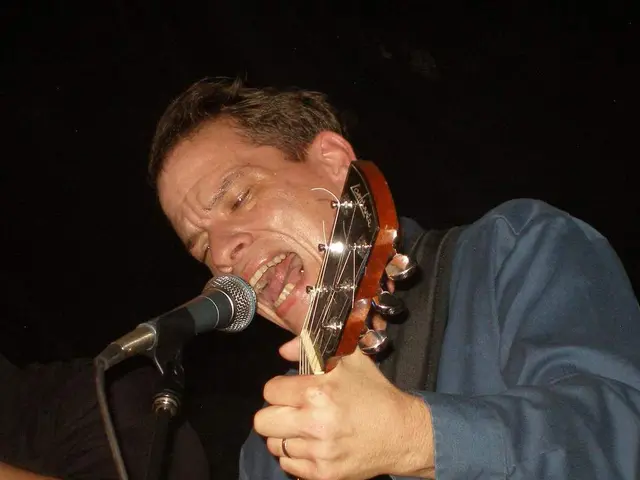Border Control: Union Chief Calls for High-Tech Upgrades for a Secure Frontier
Enhanced Border Security: Union Petitions for Advanced Technology Tools - Enhanced Border Control: Police Union Demands Advanced Technical Tools for Efficient Operations
Hey there! Let's dive into the urgent need for better tech solutions in border control, as highlighted by the union chief.
In a nutshell, the union chief, Roßkopf, is pressing for advanced equipment such as drone technology, mobile checkpoints with modern license plate recognition, devices that can detect people in vehicles from the outside, and high-tech surveillance for "green borders" - unconventional entry points. This quartet of technological upgrades would not only enhance surveillance but also help in reducing personnel deployment - a much-needed relief for the overworked reserve police and mobile units.
Roßkopf warned that the current workload is unsustainable and could potentially result in deployment shortages, particularly at key locations like train stations and airports.
Now, you might wonder why we're in this predicament. Well, the reason is these traditional, personnel-heavy border controls are simply not sustainable in the long run. At the current pace, our forces can't manage these border patrols for extended periods.
Monitoring the country's borders away from controlled crossings could significantly benefit from modern tech. For instance, the Federal Police has been testing such technology since 2018 and found it to be effective. However, these innovative tools remain unused - a criticism leveled by Roßkopf. He emphasized that such technology could monitor vast, impassable stretches with ease. Other European countries, including the Netherlands and Romania, are reportedly leapfrogging Germany in this regard.
The union isn't against controlling migration or reducing illegal migration. In fact, they support measures that help accomplish these goals. But they're concerned about the exorbitant burden being imposed on the Federal Police. The question on their minds is, just how long can these high personnel demands be sustained?
With stricter border controls now in effect, Roßkopf predicts increased congestion for travelers, particularly motorists who may face longer traffic jams. Yet the Federal Police's top priority is to minimize disruptions in border traffic and goods transport, although admitting that the heightened and intensified border controls will inevitably lead to more delays.
The new Federal Minister of the Interior, Alexander Dobrindt (CSU), recently announced tighter border controls aiming to curb refugee numbers. This will involve deploying more federal police officers at the border and rejecting asylum seekers.
Things like surveillance systems, biometric identification systems, advanced communication networks, drones, and ALPR are common technologies employed by border control agencies worldwide. However, understanding the exact tech the Bavarian border police and Federal Police in Germany are using since 2018 requires further investigation.
- Roßkopf, the union chief, advocates for the implementation of advanced technology like drones, mobile checkpoints with Automatic License Plate Recognition (ALPR), exterior-detecting devices, and high-tech surveillance for 'green borders' to reduce personnel deployment and enhance surveillance.
- The union chief Roßkopf has pointed out that the overworked reserve police and mobile units are at risk of deployment shortages due to the unsustainable current workload, especially at key locations such as train stations and airports.
- Monitoring the country's borders beyond controlled crossings could be made more efficient with modern technology, as demonstrated by the Federal Police's testing of such technology since 2018. However, the deployment of these innovative tools remains unrealized, a criticism shared by Roßkopf.
- The increased usage of technology in border control could lead to improved efficiency in managing vast, impassable stretches and reduce the strain on personnel, as observed in other European countries like the Netherlands and Romania.








